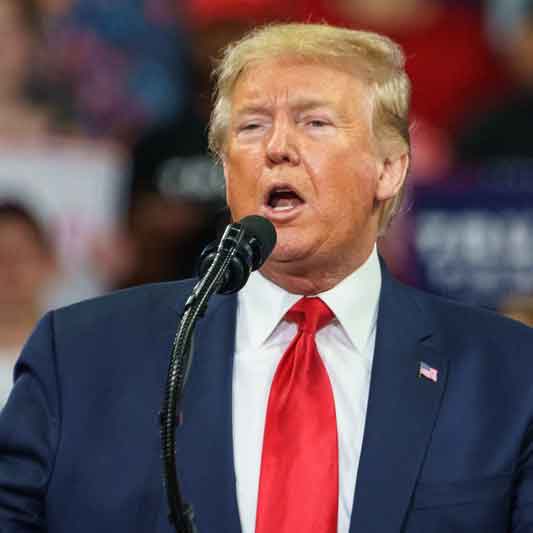In an unexpected political alliance, ex-Rep. Liz Cheney (R-Wyo.) publicly endorsed Vice President Kamala Harris during a campaign event in Ripon, Wisconsin on Thursday, October 3, 2024. Cheney called on voters to “reject the depraved cruelty of Donald Trump” and support Harris’s candidacy. This public endorsement, Cheney’s first for Harris, elicited an immediate response from Trump.
Trump swiftly responded via Truth Social, disparaging both Cheney and her father, former Vice President Dick Cheney. He referred to them as a “pathetic couple,” accusing them of suffering from “Trump Derangement Syndrome.”
Cheney’s father, Dick Cheney, also publicly endorsed Kamala Harris for the 2024 presidential race on September 6, 2024, in a rare show of cross-party support. He expressed his opposition to former President Donald Trump, whom he labeled as “the greatest threat to our republic.”
Trump, who has had public disagreements with Liz Cheney regarding her involvement in the January 6 committee, accused her of inciting the Capitol attack. He described her as a “low IQ War Hawk.”
At the event, Cheney clarified that her criticisms were based on concerns for the future of the nation, rather than on personal grounds. “In this election, putting patriotism ahead of partisanship is not an aspiration,” Cheney stated. “It is our duty.” Her statements received applause from the audience as she urged voters to see Harris as a credible alternative to Trump in the upcoming election.
The unexpected rapport between Cheney and Harris reflects the Vice President’s campaign strategy to reach out to dissatisfied Republicans. By uniting with a staunch conservative like Cheney, Harris hopes to appeal to a demographic that is open to crossing party lines. Cheney, who lost her House seat after condemning Trump, also recognized that her concerns about Trump’s impact on the GOP have superseded her political allegiance.
In a subsequent media interview, Cheney reiterated her criticisms of Trump. She mentioned that Trump had praised the rioters after the Capitol was stormed on January 6, instead of condemning them, which she said revealed his character.
Alongside the Cheneys, Vice President Harris’s campaign has been endorsed by an increasing number of former Republican officials and ex-Trump administration staffers. These endorsements signal a considerable shift in political loyalties as the election draws near.
Over one hundred former GOP officials, including those from previous Republican administrations, have publicly declared their support for Harris. They raised concerns about Trump’s suitability for office and the potential risk he poses to American democracy.
Adam Kinzinger, a former representative from Illinois who spoke at the Democratic National Convention in August, called on GOP voters to “vote for our bedrock values and vote for Kamala Harris.” Kinzinger mentioned he would “certainly accept a cabinet post under Harris if offered one.”
Jeff Flake, a former senator from Arizona, has endorsed the Democratic ticket. He cited his past experience working with Harris in the Senate and her running mate, Minnesota Governor Tim Walz, in the House as reasons for his support. “I would encourage all Republicans who feel this way to do the same,” Flake stated on a social media platform.
The roster of Republican endorsements also features former Trump administration staff members. Anthony Scaramucci, a former White House Communications Director, and Stephanie Grisham, a former Press Secretary, have both endorsed Harris.
During the first debate between Harris and Trump, Scaramucci told MSNBC, “She [Harris] is the person dedicated to service — he’s the person that’s dedicated to self-service.”
Grisham, who spoke at the Democratic National Convention, told the audience, “Kamala Harris tells the truth. She respects the American people and she has my vote.”
In a noteworthy development, over 200 former staff members of previous Republican presidential nominees signed an open letter endorsing Harris over Trump. The signatories, including individuals from the Bush and McCain campaigns, cautioned that a second Trump term would be “untenable” and would “hurt real, everyday people.”
The letter appealed to “moderate Republicans and conservative independents” to support the Harris-Walz ticket, asserting that another Trump presidency could jeopardize “broad, democratic movements” and potentially lead to the U.S. abandoning allies while aligning with dictators.
A group of 24 Wisconsin Republicans also wrote an open letter asserting that Trump does not embody Wisconsin values. They argued that the Harris-Walz ticket represents principles of “freedom, democracy, and decency.”
The Harris campaign has leveraged these Republican endorsements in an ad titled “Unstable Threat,” which includes critical comments about Trump from his former allies. This tactic highlights the campaign’s efforts to appeal to Republican-leaning and undecided voters in what is expected to be a tightly contested race.
While these endorsements signify a significant deviation from party lines, not all former Trump allies have endorsed the Democratic ticket. Some, including former Vice President Mike Pence, have declined to endorse Trump but have fallen short of supporting Harris.
The Trump campaign has brushed off these Republican endorsements of Harris. In reaction to the open letter from former GOP presidential staffers, the campaign described the signatories as unknown individuals who would “rather see the country burn down” than see Trump return to the White House.
As the 2024 presidential race heats up, the Harris-Walz campaign continues to spotlight these cross-party endorsements as part of its strategy to attract a diverse coalition of voters. The increasing number of Republican figures supporting the Democratic ticket underscores the deep divisions within the GOP over Trump’s ongoing influence and the readiness of some conservatives to prioritize the country’s interests over party loyalty.

